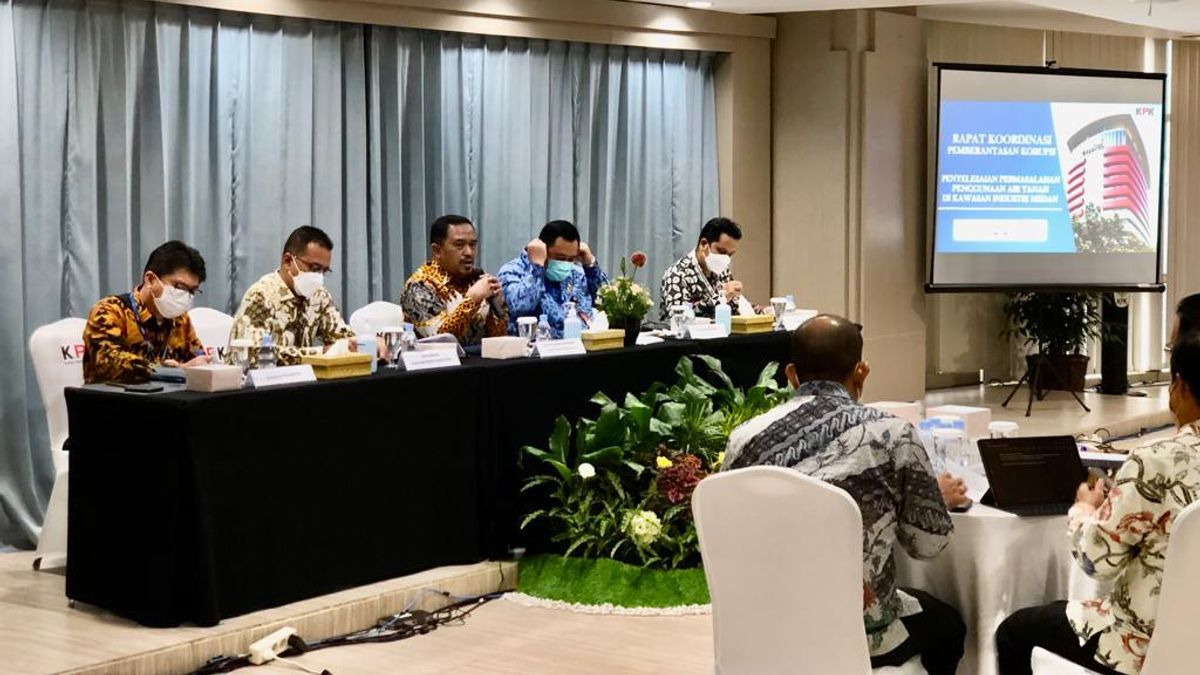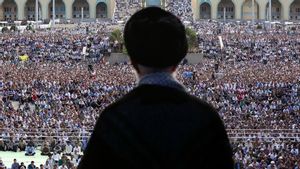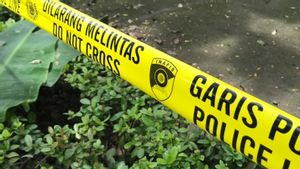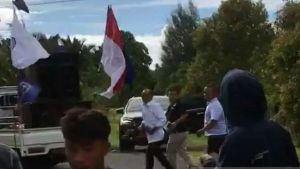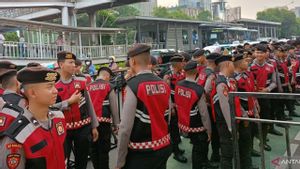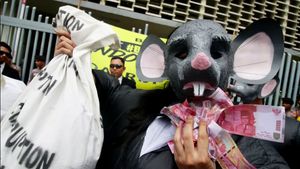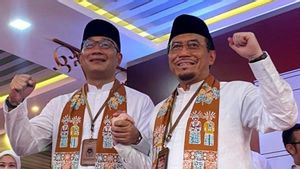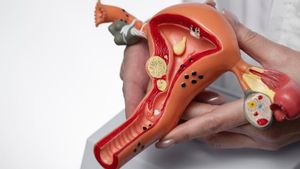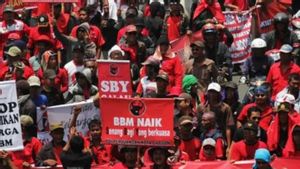JAKARTA - The Corruption Eradication Commission (KPK) has asked for the problem of using ground water in the Medan Industrial Estate (KIM) to be resolved immediately. All policy makers are asked to enforce existing rules to resolve this issue.
This was conveyed by the Director of Coordination and Supervision for Region I of the KPK, Didik Agung Widjanarko, in the Coordination Meeting (Rakor) which was held on Thursday, March 17 yesterday.
"If there are deviations that have an impact on state losses or there are parties that cannot be regulated, then enforce the rules," said Didik as quoted from a written statement, Friday, March 18.
The KPK is indeed coordinating and monitoring the implementation of the duties and responsibilities of the relevant parties.
Moreover, based on a report received by the anti-corruption commission, local tax revenues, which should be called groundwater taxes, in the period December 2017 to November 2018 amounted to IDR 7 billion from 68 companies that paid it. Tax payments were not continued for various reasons, one of which was licensing.
In response to this request, the Deputy Governor of North Sumatra, Musa Rajeksah, said that there were 437 companies in the industrial area. In detail, 171 listed companies use surface water meters produced through KIM's partner, PT DCC.
Then, there is 1 company, namely PT GA which produces and uses its own surface water. Finally, there are 112 companies that use water from PDAM Tirtanadi, North Sumatra Province.
“From these data, it can be illustrated that there are 153 companies that do not use surface water. It is estimated that as many as 153 companies are suspected of taking and using groundwater illegally because they do not have surface water meters," he said.
Rajekshah then assumes that if the 153 companies use groundwater illegally, the calculation of potential regional losses in 2021 is a minimum of around IDR 313 million.
The main problem related to groundwater in North Sumatra, explained Rajekshah, referring to Article 39 paragraph 1 letter c of PP No. 142 of 2015 concerning Industrial Estates which expressly prohibits industrial companies from taking groundwater in industrial areas.
The previous regulation, namely PP No. 24 of 2009 concerning Industrial Estates, he continued, actually regulates the same thing. However, it is suspected that several companies have violated these regulations.
Complementing Rajekshah, Director of Regional Revenue of the Ministry of Home Affairs, Hendriwan, emphasized that his institution is ready to support in terms of regulations based on mutual agreement in the coordination meeting. He also explained that one of the APBD postures, apart from transfer funds, is Regional Original Revenue (PAD).
In this PAD component, Hendriwan continued, there are taxes and levies that have a very large contribution to local governments to develop their regions so that they can be independent and prosper the people.
“Regarding this regional tax, it is indeed coercive. If later there are individuals or entities that have carried out activities such as taking or utilizing groundwater, they will become objects of tax and must be levied with taxes," said Hendriwan.
Hendriwan added that the groundwater tax is a district/city government tax in which the granting of permits is under the authority of the Province. The basis for the levy is determined in local regulations. For business entities that do not have a license, they still have to pay taxes.
The parties present at the meeting were the Deputy Governor of North Sumatra Musa Rajeksah, Director of Regional Revenue of the Ministry of Home Affairs Hendriwan, and Director of Industrial Regions of the Ministry of Industry Adie Rochmanto Pandiangan.
In addition, the President Director of PT KIM (industrial area manager) Ngurah Wirawan as well as the ranks of the North Sumatra Provincial Government (Pemprov) and the Deli Serdang Regency Government were also present.
The English, Chinese, Japanese, Arabic, and French versions are automatically generated by the AI. So there may still be inaccuracies in translating, please always see Indonesian as our main language. (system supported by DigitalSiber.id)
